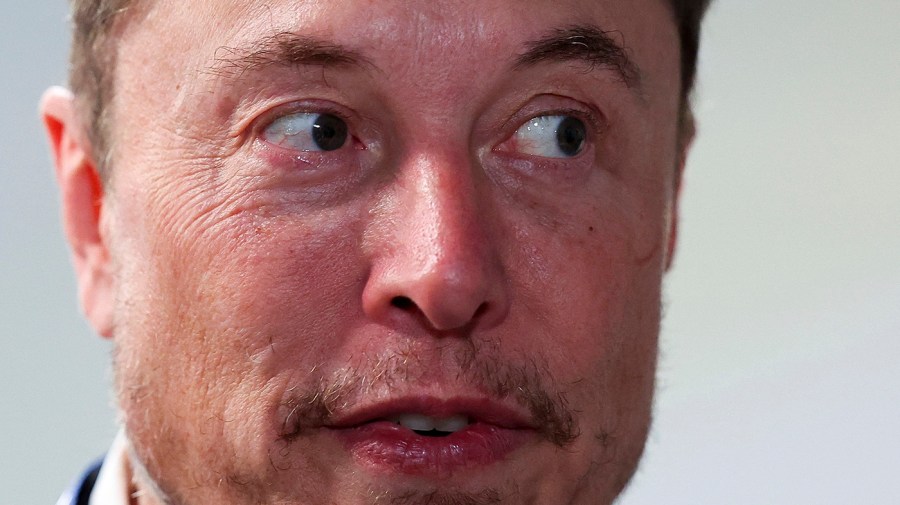For the past four years, the federal government has been at war with Big Tech. The explosive parting shot of President Biden’s Department of Justice is a bewildering lawsuit aiming to break up Google. The lawsuit contains a smorgasbord of proposals, including hiving off Chrome, which almost seem designed to undermine the American economy by dissuading investment, obstructing innovation and creating unnecessary obstacles for consumers accessing technology.
If Donald Trump continues the antitrust action he inherits from Biden, he will unnecessarily undermine economic growth. His political movement cannot survive that.
Trump has staked everything on the economy. He won the presidency thanks to high grocery prices. Although inflation is down, grocery prices will stay high, and his tariffs threaten to send prices of some items soaring again. Swing-state voters will notice if the cost of imported coffee, fruit, sugar and soap skyrockets. Trump therefore needs to bank some economic growth, to prevent the MAGA project dying in 2028.
Silicon Valley is the answer.
Big Tech is arguably America’s most successful export. Walk down the street in practically any country and you will see people using Google on their Android phones. Those who don’t use Android have iPhones. Countless millions use WhatsApp, which is part of Meta. They have Windows computers where they browse American websites using Google Chrome and Mozilla Firefox. Everywhere you look, in the furthest corners of the planet, people buy and use products from American Big Tech companies. Trump should lean into Silicon Valley, not shun it.
The second Trump administration already has something of a “tech bro” image. JD Vance, Elon Musk and Vivek Ramaswamy are all closely associated with a certain type of Silicon Valley entrepreneur. Trump enjoyed endorsements from across the venture capital and crypto worlds, from Marc Andreessen to the Winklevoss twins.
However, it is up for debate whether the Trump brand of tech bro will ultimately benefit Silicon Valley. Earlier this year, Vance praised Lina Khan, Biden’s Federal Trade Commission chief, who has spent her time in office firing off destructive lawsuits of her own, aiming to break up successful American companies like Amazon.
It is in Trump’s interests to seize the narrative early on antitrust, rather than kicking the can down the road. Interventionists like Khan who deplore successful American enterprise and see new regulation as the solution to all society’s problems will not go into hiding over the next four years. If anything, their voices will get louder now they are outside the tent.
The antitrust Overton Window is sliding fast toward yet more state intervention in the market. Jonathan Haidt has become something of a thought leader in tech alarmism in recent years. In a recent Wired op-ed, he likens technology to alcohol, arguing regulators should prevent under-21s accessing much of the internet.
“The idea that parents alone should manage their children’s access to alcohol would have struck most people as absurd,” he writes. “Likewise, it will soon seem absurd that we once allowed children of any age to go everywhere on the internet that adults go.”
Besides the obvious fact that regulations aiming to restrict internet access rarely work — kids know their IPs from their VPNs and can easily circumvent restrictions — this kind of thinking mirrors European-style centrism, where economic growth is secondary to safety concerns. For Trump to align his administration with this anti-tech mentality would be absurd and self-defeating.
To follow through on his promises to the electorate of growth and prosperity, Trump should make a point of safeguarding and boosting America’s most successful industry. That starts with severing the spider’s web, where red tape enthusiasts try to use antitrust as a vehicle to grow the size of the state exponentially. It also means trashing the absurd proposal from the outgoing Biden DOJ to blow up Google.
Beyond saying no to these radical proposals from Silicon Valley’s enemies, making Big Tech’s success work for him requires little effort from Trump. While the rest of the world descends into a bottomless pit of regulation, he can sit back and watch as investment pours into the U.S. economy and a handful of tech companies continue to send the S&P 500 soaring.
That’s the wonder of the free market: it is most successful when the government expends little effort. Breaking up Google would take a huge amount of time and energy. The best thing the 78-year-old president-elect can do, for the economy and for the future of his movement, is nothing.
Jason Reed is a policy analyst and political commentator, who has contributed to more than 100 major media outlets across 15 countries. He is a spokesperson and project manager at Young Voices, a non-profit organization.

